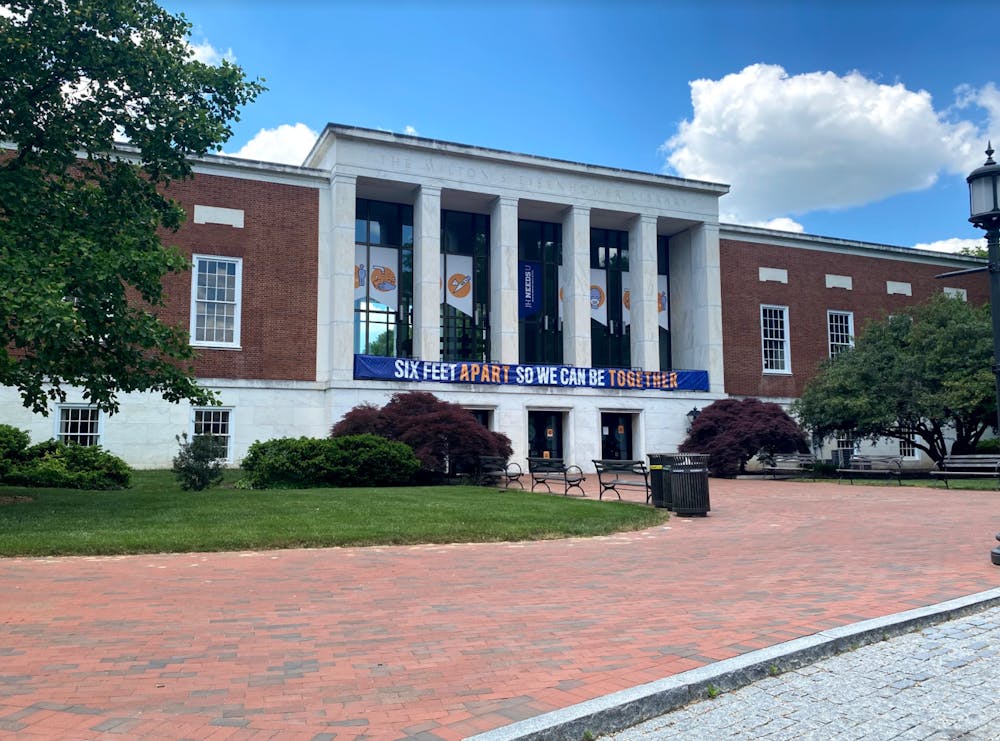In a reversal from previously declared policy, the University announced in an email on August 19 that it will only accept COVID-19 vaccines approved by the Food and Drug Administration (FDA), which currently includes the Moderna, Pfizer-BioNTech and Johnson & Johnson/Janssen vaccines.
The University had previously stated that it would accept World Health Organization (WHO) approved vaccines, such as Oxford/AstraZeneca, Sinopharm, Sinovax, Covishield or Novavax. However, the administration claimed that they did not view these vaccines as effective against the more aggressive and highly prevalent delta variant.
As a result, those who have received non-FDA-approved vaccines are required to get re-vaccinated with those that are approved by the FDA.
Vice President for Communications Andrew Green noted in an email to The News-Letter that students needing to get re-vaccinated will be under the same health restrictions as unvaccinated individuals.
“Students who require re-vaccination will be allowed on campus and to participate in university activities, but until they are fully immunized, they will be required to test twice weekly and to follow the same masking requirements as those who have authorized exceptions to the vaccine mandate,” he wrote.
Junior and international student Nainika Pansari expressed concern about the implications of the new policy for international students in an email to The News-Letter.
“I think it’s going to be really bad for international students,” she wrote. “A lot of them have gotten WHO approved vaccines, and I believe if they weren’t effective/working, WHO would not have approved them in the first place.”
A study published in the New England Journal of Medicine found that two doses of AstraZeneca or Pfizer are nearly as effective against the delta variant as they are against the older alpha variant.
However, Molecular Microbiology and Immunology Professor Dr. Diane E. Griffin stated in an email to The News-Letter that she believes the University’s new policy to be sensible.
“It has become clear that vaccines differ substantially in level of protection not only against the original Wuhan strain that all were designed for, but also, and more importantly, against variants that have arisen (delta at the moment but more to come..),” she wrote. “With this policy, the University only has to keep up with the relevant protection data and recommendations (boosters, etc) for the US-approved vaccines that most people have gotten.”
Pansari believes the policy is discriminatory toward international students, emphasizing that being forced to re-vaccinate will increase stress for these students.
However, she appreciates the fact that the University is providing the FDA-approved vaccines.
“On the positive sides of things at least here they are providing free vaccines for international students so they don't have to frantically go looking for a place to get that done,” she wrote.
In their email, University leaders stated their plans to expand mandatory asymptomatic testing in order to aid in the detection of early COVID-19 outbreaks. Green wrote that the University is still working out the exact details of testing.
Junior Andrea Guillen reflected on the thrice-weekly COVID-19 testing of the Spring semester.
“I don't mind getting tested. Three times a week is a lot, but I’d much rather have a normal college experience,” she said.
Currently, the University requires all vaccinated residential students to be tested once a week and requires all unvaccinated students, faculty and staff on Homewood campus to be tested twice a week. Non-residential students are not presently required to complete asymptomatic COVID-19 testing.
Sophomore Allison Eberhardt noted she does not mind increased testing.
“I’d gladly be tested three times a week if it means I can eat together inside with my friends. Meals are important social contact points,” she said.
Green emphasized that the University still remains on track to have an in-person fall semester.
Laura Wadsten contributed reporting to this article.





